A nationwide week long water fight
In a world full of shootings, bombings, terror, poverty, and starvation, it’s hard to believe that an entire country takes a week off to engage in such a childish activity as a water fight. But this actually happens annually in none other than the politically volatile yet lovable land of smiles, more formally known as the kingdom of Thailand.
Songkran is the celebration of the Thai New Year and it takes place from April 13-15, although the festivities may last up to a week in some places such as the Northern regions. It is a rich holiday filled with many customs and cultural practices that I unfortunately know very little about. But having experienced Songkran in the heart of the country in 2015, I can attest to the one element that it currently revolves around, and that is water.
The water festival history originates in the cleansing of the spirit and body to bring on a fresh new year. People pour water over Buddhist statues hoping for luck for the new year. Young people pour water over the palms of their elders honoring them with their love and respect.
But what was once symbolic in the cleansing of spirit has turned into a full celebration of two parts hydrogen, one part oxygen. Attending Songkran will immediately transport you back to childhood and the joys of a good ole fashioned water fight in the midst of a teeming summer. Leave your phones and cameras in the room (or at least pick up a dry bag sold all over Bangkok) as not an ounce of your body will come out dry. Songkran means you are going to get wet, and whether you are a Thai or tourist, no one is spared.
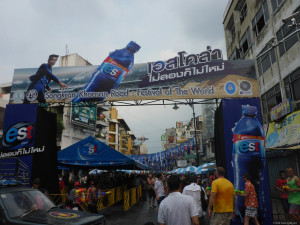
My experiences with Songkran are limited to Bangkok and Chiang Mai so I will only focus on those areas. I’m not sure what it is like elsewhere except if its anything like what I saw, it’s pretty damn fun. I rolled into Bangkok from the Southern region on the eve of Songkran and it was pretty apparent what was about to go down. From what I heard the authorities limit the madness to two main areas, Silom, and Khao San and these basically turn into war zones. I was staying in the Khao San area which is a heavily touristed area and I would suspect the Silom spot has a bit more locals and expats but the truth is, either one of these places is going to be fun.
Songkran was set to begin at sundown and shop owners and restaurateurs were already waterproofing their shopfronts by rolling down huge sheets of plastic. Vendors pedaled water guns of every shape and size and I learned the hard way that anything under the biggest gun they have is a waste of time. Your tiny stream will pale in comparison to everyone else and you will lose each and every fight you get into. Do it right and spring for the big boy. Remember, this is Thailand, so bargain bargain bargain!
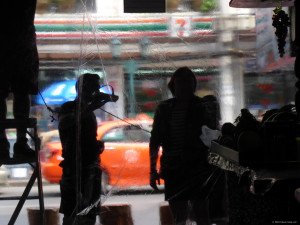
waterproofing the shops pre-Songkran
As the sun went down, the shitshow started. The Khao San is a mess of tourists on any given day and Songkran was no different. Koreans attacked in packs with backpacks holding their water supply. Aussies fired on Kiwis and French on the Brits. Chinese swarmed all around. And the Thais, the Thais were everywhere. This was their holiday and whether you may think it has been ruined by tourists or not, the locals outnumbered the foreigners by far. Race, nationality, friendship and anything else went out the window. The only thing that mattered was whether you were dry or not. And I assure you, if you were in the area, you wouldn’t stay dry for long.
I almost felt bad for the backpackers, dropped off from some long bus journey, frantically searching for their hotels as their bags quickly became soaked. Some gave dirty looks, others gave up, bought a gun, and joined in the fun. But no-one showed mercy.
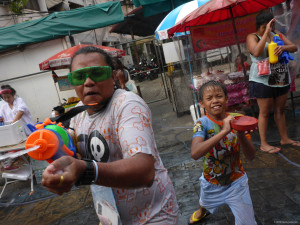
The next day my companion and I headed up to Chiang Mai for a different look at this water madness. Everyone we came across told us the North was the place to be, that Chiang Mai was where it was at. Whereas in Bangkok the fighting was limited to a few areas designated by the authorities, in Chiang Mai, anything went; the whole city was fair game.
We arrived in the middle of the night, guns strapped to our bags, and were fortunately able to slip into the city unmolested while the revelers slept. The next morning we set out, locked and loaded, to see what this gem of a city had to offer during Songkran. Gunfights broke out as soon as we hit the streets and we were soaked by the time we took respite for some breakfast at a roadside stall. Even that proved to be futile as we were interrupted numerous times while we ate when we had to pick up our guns fend off attackers.
The old city of Chiang Mai is surrounded by a moat and along the moat is where most of the action is. People lined the moat with buckets full of the moat water. Kids dove in for refills. In Bangkok you filled up with bottled water and paid a premium for the ice cold ones. In Chiang Mai it came out of a hose or the moat directly and filled trash bins and the ones containing huge blocks of ice were the most sought after.
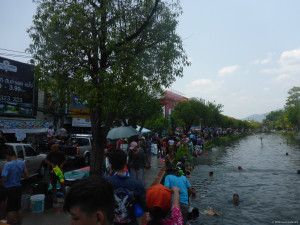
Songkran along the Chiang Mai moat
Combatants of the moat-liners were people packed into the beds of pickup trucks or tuk-tuks, lugging their own trash bins filled to the brim. In Chiang Mai some fought with guns but most used buckets, opting or a healthy dousing instead of a powerful stream. The action went on for days and it certainly wasn’t relegated to the moat. Crews set up on storefronts and bars throughout the city and took aim on any type of passerby, pedestrian or motorbike alike. Trucks cruised through the city blasting music as their occupants doused water on anyone and all. I am a big fan of driving a motorbike but you couldn’t have paid me to take one through the streets of Chiang Mai during Songkran. Yet instead of crashing, as I surely would have done after an ice water surprise attack, the Thais just shrugged it off with a smile and kept going on their way. One day we joined a group of tourists and Thais set up outside a local bar and took turns ambushing anything and everything that came our way. Our trash bin had the coveted ice which felt oohhh so cold after it was dumped down your back. When the ice melted, someone got on the phone and ordered some more. In minutes a truck came by and dropped off some more blocks. The party went on.
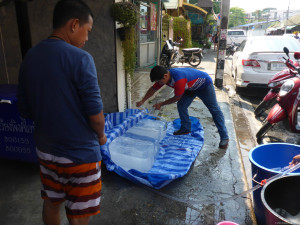
the iceman cometh
Now Songkran isn’t all roses and good times. There is a dark side to it. An astounding number of Thai motorists are killed every year during the week of the festival with the majority being attributed to drunk driving and speeding. I’m not sure what the environmental impact is on this massive waste of water but I cannot imagine it being too good. And from a personal standpoint, believe me, by the end of it, you are going to be sick and tired of being wet and furious about that fact that you cannot walk to the 7-11 for supplies without getting soaked to the bone.
These are all valid reasons to consider skipping out on Songkran. If you happen to be in country at the time, hide out on an island and you will never be the wiser. But if you are interested in seeing something different and feeling like a kid again, book a ticket, buy a water gun, and join in the fun. Please be respectful and don’t shoot people in the face (unless they do it first!) but get over there and have a blast because who knows how long this week-long water fight will last. Have you been to Songkran or anything else like it? Good or bad experience? Please share and comment below.
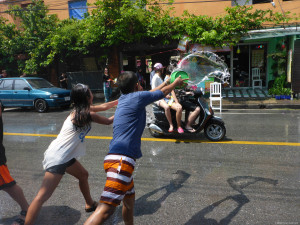
no driver is safe

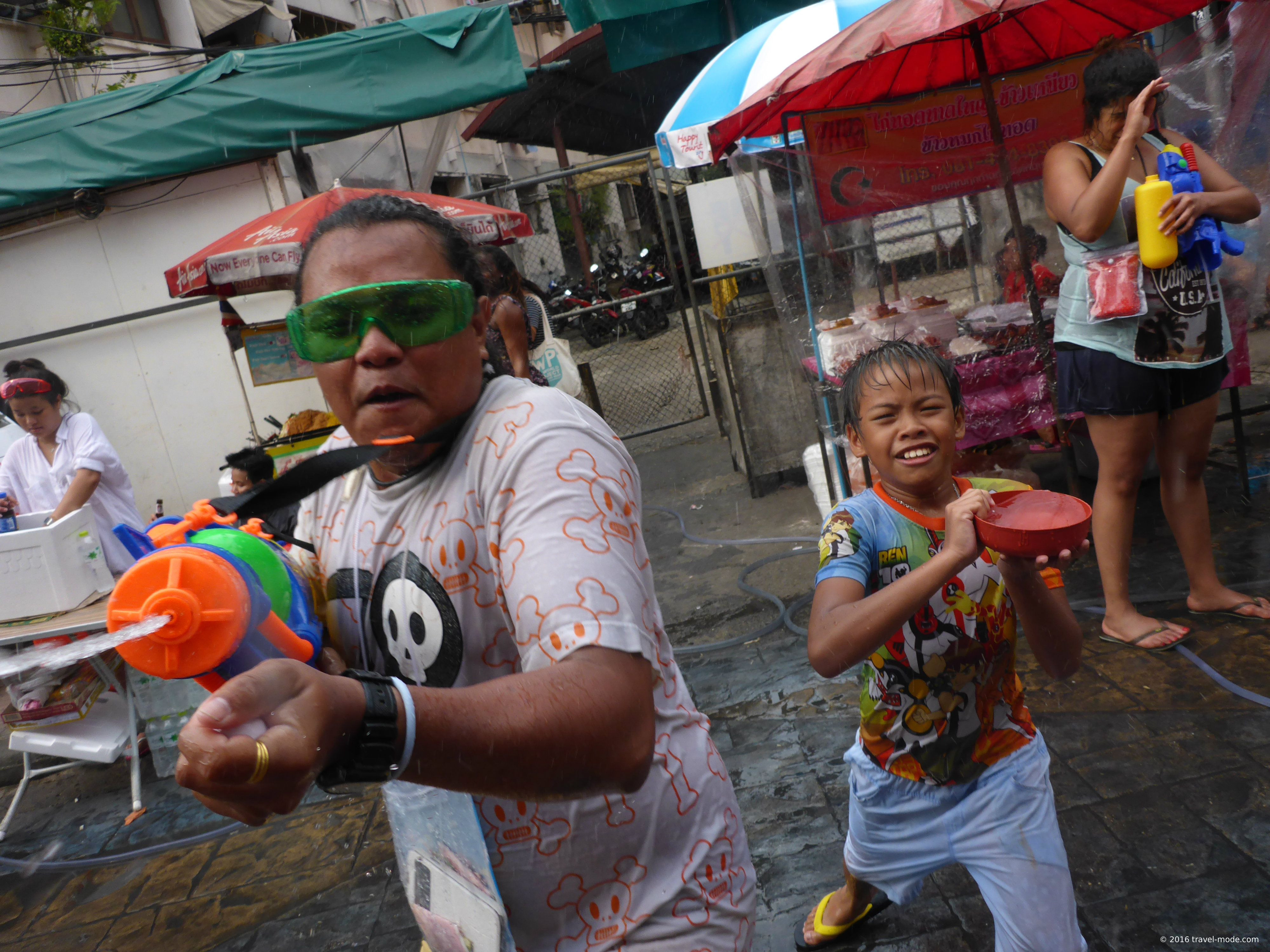



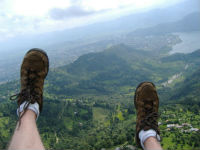 Jack Talon, a self-proclaimed “guy who does stuff…sometimes.” has spent his life scouring the globe seeking the two things not craved by the Jedi; adventure and excitement. He has logged many hours on the road as a backpacker and also spent years living internationally. You can read about one of his major backpacking adventures
Jack Talon, a self-proclaimed “guy who does stuff…sometimes.” has spent his life scouring the globe seeking the two things not craved by the Jedi; adventure and excitement. He has logged many hours on the road as a backpacker and also spent years living internationally. You can read about one of his major backpacking adventures